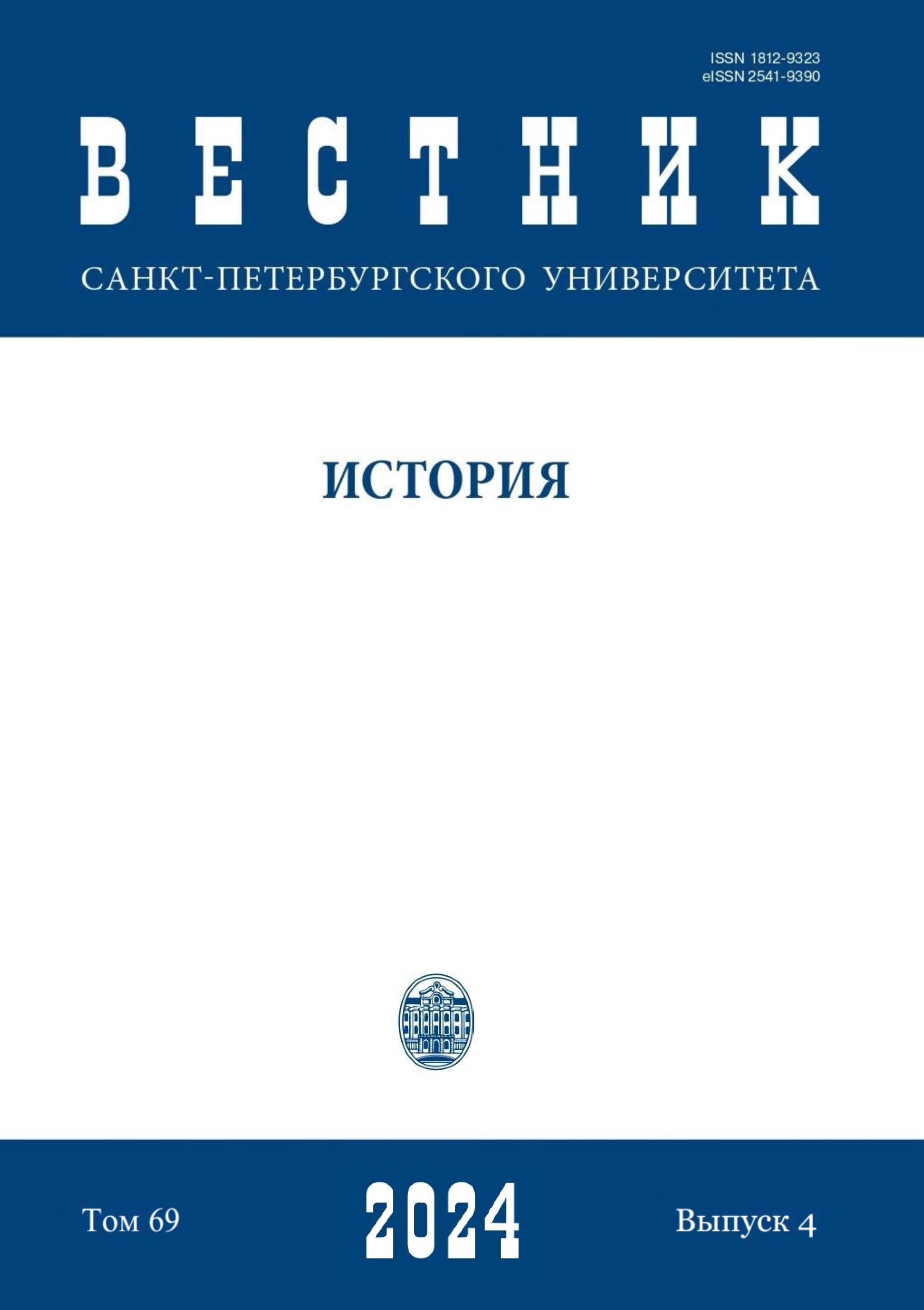The List of Lords of the Rada of the Grand Duchy of Lithuania in Russian Genealogical Books
DOI:
https://doi.org/10.21638/spbu02.2024.408Abstract
This paper examines the circumstances of the origin and peculiar features of the contents of the “List” of Lords of the Rada (Pany Rady) of the Grand Duchy of Lithuania, which was included as a separate chapter in several lists of Russian genealogical books which represents the Razryadnaya and the Compiled Editions. It includes the names of 20 figures, 15 of whom, indeed, were senators of the Lithuanian state, and the remaining 5 were courtiers of the Polish king Sigismund II Augustus. The identification of those persons and the addressing of the ruler of Poland and Lithuania as “king” rather than “crown prince” or “king’s son” allow us to attribute the time of compiling the “List” to mid spring of 1548 — early spring of 1549. The consideration of this source in the context of Russian-Lithuanian diplomatic relations during the first months of the independent reign of Sigismund II Augustus makes it possible to narrow down the proposed dating and put forward an assumption about the likely compiler of the “List”. That person could be Feodor Dmitrievich Zagryazhsky who visited Lithuania and Poland on a diplomatic mission in the summer — early autumn of 1548. The conclusions obtained with regard to the “List” dating require to adjust the approaches to the textual study of genealogical books: the text under study cannot be attributed to the time when the protograph of the Razryadnaya Edition (the 1560s) emerged, since the former is an earlier one in relation to the latter.
Keywords:
Lords of the Rada (Pany Rady) of the Grand Duchy of Lithuania, Sigismund II Augustus, textual study of genealogical books, Razryadnaya Edition, Russian-Lithuanian diplomatic relations, Feodor Dmitrievich Zagryazhsky
Downloads
References
Downloads
Published
How to Cite
Issue
Section
License
Articles of "Vestnik of Saint Petersburg University. History" are open access distributed under the terms of the License Agreement with Saint Petersburg State University, which permits to the authors unrestricted distribution and self-archiving free of charge.





